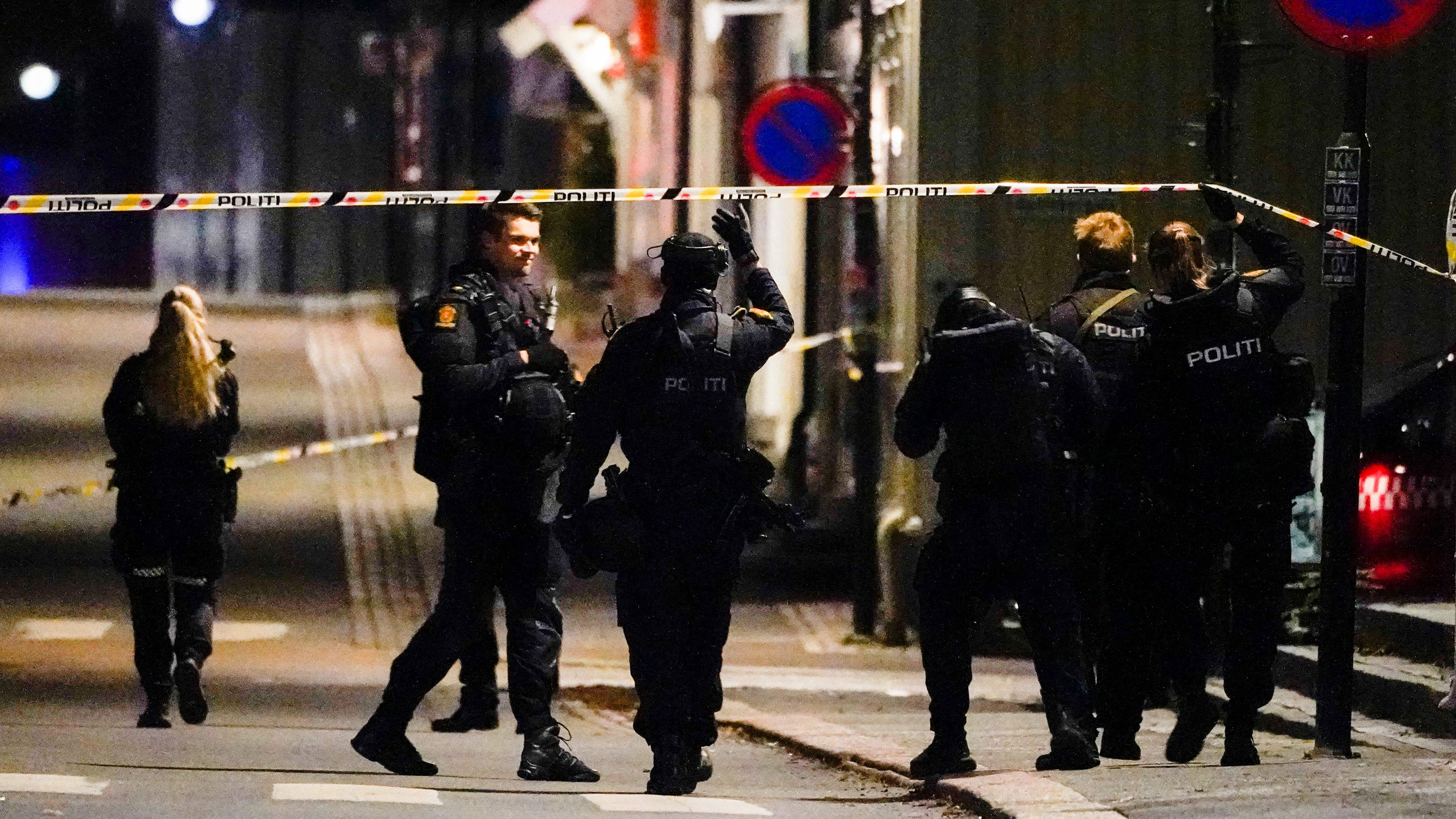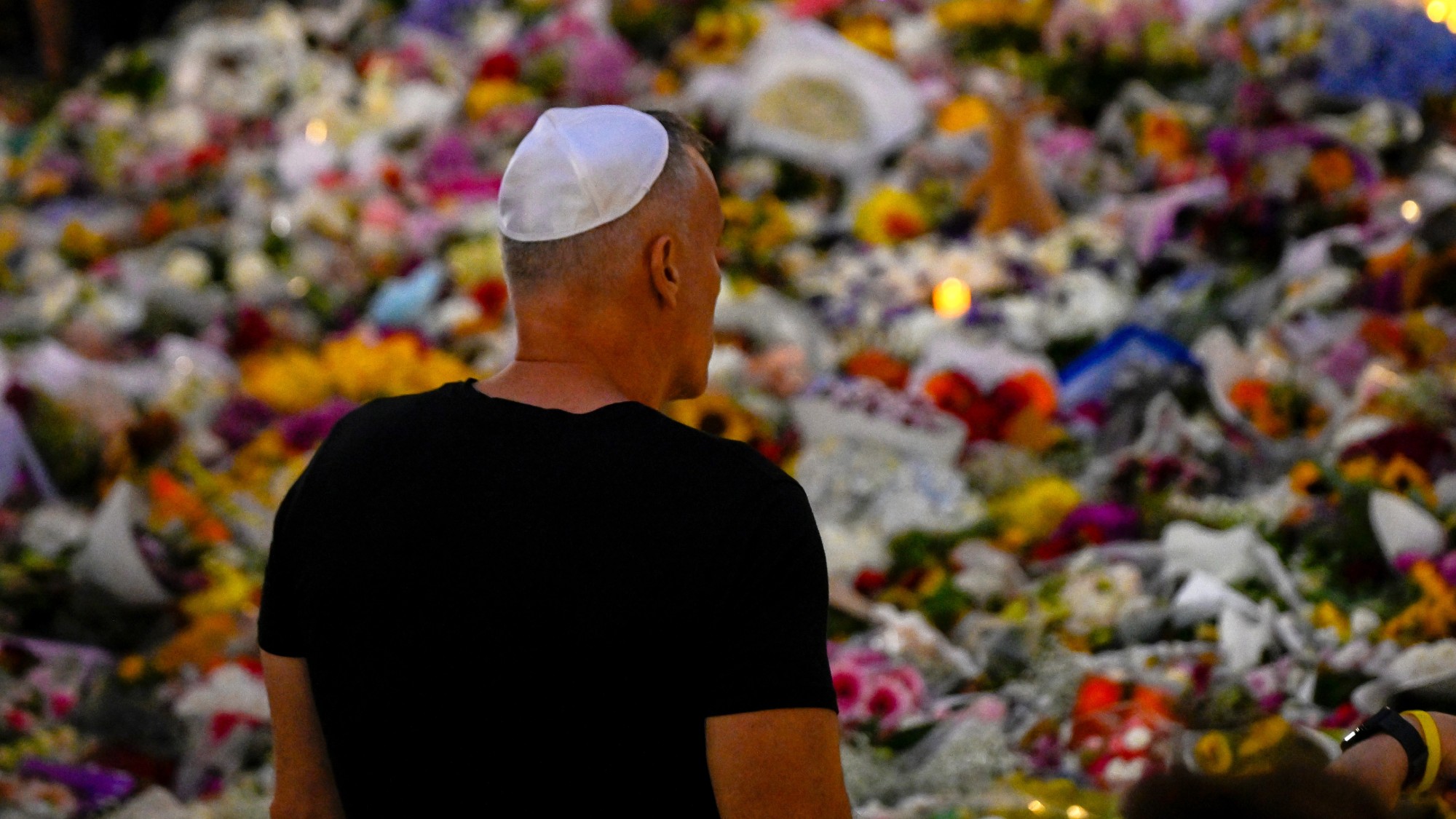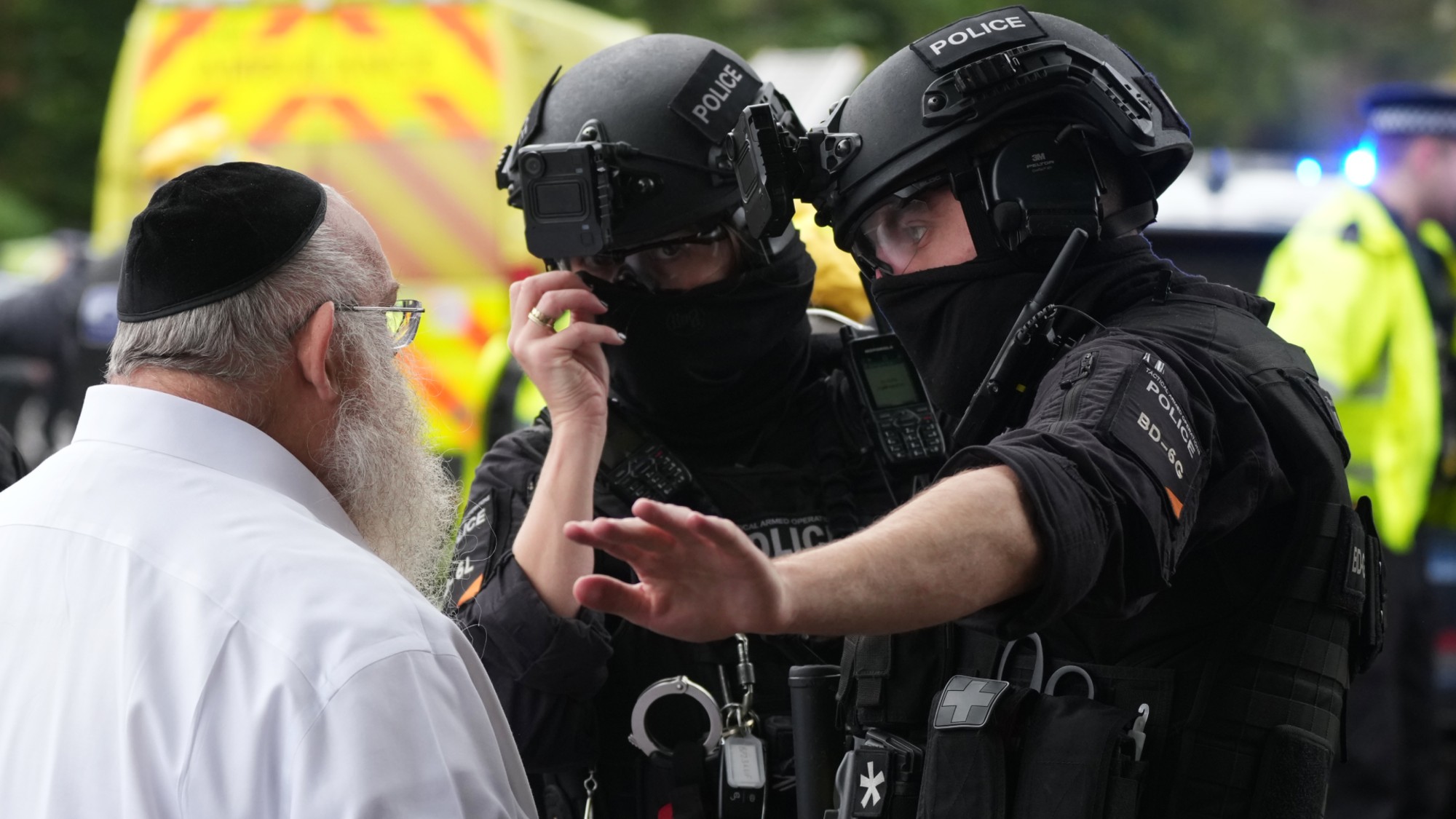Everything we know so far about the ‘horrifying’ Norway bow and arrow attack
Suspect appears to have carried out an ‘act of terror’, security services say

A free daily email with the biggest news stories of the day – and the best features from TheWeek.com
You are now subscribed
Your newsletter sign-up was successful
The suspect in a bow and arrow attack that left five people dead in Norway was a recent convert to Islam who had been contacted by police over fears he was being radicalised.
A 37-year-old Danish man has been charged after admitting to carrying out the deadly attack, which also left two others seriously injured in the town of Kongsberg, according to prosecutor Ann Iren Svane Mathiassen. Norwegian security services said that it appears to have been an “act of terror”.
Police were alerted to the incident just after 6pm local time on Wednesday. The attacker then “managed to escape an initial confrontation” with police before being detained “35 minutes after the attack began”, during which time the victims “were most likely killed”, the BBC said.
The Week
Escape your echo chamber. Get the facts behind the news, plus analysis from multiple perspectives.

Sign up for The Week's Free Newsletters
From our morning news briefing to a weekly Good News Newsletter, get the best of The Week delivered directly to your inbox.
From our morning news briefing to a weekly Good News Newsletter, get the best of The Week delivered directly to your inbox.
‘Running for their lives’
The victims of the attack included four women and one man between the ages of 50 and 70. The two people wounded in the attack, one of which was an off-duty police officer, were being treated in intensive care for non-life-threatening injuries.
The attack began “in a Coop Extra supermarket on the western side” of the town, The Telegraph said. “Residents were ordered to stay indoors and large areas were cordoned off” as the suspect then left the store and “walked around downtown Kongsberg shooting arrows”.
A witness told local station TV2 that she saw a “man standing on the corner with arrows in a quiver on his shoulder and a bow in his hand”, adding: “Afterwards, I saw people running for their lives. One of them was a woman holding a child by the hand.”
A free daily email with the biggest news stories of the day – and the best features from TheWeek.com
Police chief Oeyving Aas “confirmed there was a confrontation with the suspect when he tried to run away before he was arrested”, The Independent said.
The “suspect moved over a large area” during the attack, the BBC said, meaning residents were “ordered to stay indoors so authorities could examine the scene and gather evidence”. Gardens and garages in the vicinity were also searched by sniffer dogs.
Norwegian newspaper Aftenposten cited regional police chief Ole Bredrup Sæverud as saying that all of the victims were likely killed “after the police were in contact with the perpetrator for the first time” and that the suspect is co-operating with the police’s investigation.
‘Concern about radicalisation’
The police said that the unnamed man had been interrogated overnight and had “confessed”, according to Deutsche Welle (DW).
In a statement, the Norwegian Police Security Service (PST), the country’s intelligence service, said the events “currently appear to be an act of terror, but the investigation... will determine in closer detail what the acts were motivated by”. The suspect was “known to PST from before”, the statement added.
The suspect, who lives in Kongsberg and had a Danish mother and Norwegian father, “was taken to the nearby town of Drammen” where he is being held in police custody, The Telegraph added. Authorities have confirmed that “they are not searching for other people in relation to the attack”.
Aftenposten said Sæverud did not “say anything about what the man had explained” to police, but did confirm that he had recently converted to Islam and that there had previously “been a concern about radicalisation, which the police had followed up”.
“The police are said to have received a report of concern about the man in 2020”, the paper added. “There have been no reports relating to the man in 2021.”
Norway’s public broadcaster, NRK, reported that the suspect has previous criminal convictions and was “last year sentenced to a six-month restraining order against two close family members after he threatened to kill one of them”.
He was also “convicted of burglary and the purchase of small quantities of hashish” in 2012, the broadcaster added. The verdict following those crimes stated that he had been “convicted of similar offences before”.
‘Cruel and brutal act’
Responding in the immediate aftermath of the violence, Norway’s acting prime minister, Erna Solberg, described the attack as “gruesome” and “horrifying”, adding: “I understand that many people are afraid, but it’s important to emphasise that the police are now in control.”
Prime minister-designate Jonas Gahr Store, who is expected to take office on Thursday, called the assault “a cruel and brutal act”.
Kongsberg’s mayor, Kari Anne Sand, described the town as “a completely ordinary community with completely ordinary people”, adding that it was a “very tragic situation”.
Officials in the town, which lies 41 miles southwest of the capital Oslo, have “invited people who were affected by the attack and their relatives to gather for support at a local hotel”, ITV said.
The Norwegian Police Directorate has also “ordered officers to carry weapons following the attack”, according to DW. Officers in the Scandinavian country are not usually armed.
The attack is the deadliest in Norway since far-right extremist Anders Behring Breivik murdered 77 people, most of them at a children’s Labour Party summer camp on the island of Utoya, in July 2011.
Breivik was sentenced to 21 years in prison, the maximum under Norwegian law, following the attack that “stunned” the country, ITV said. This term can, however, “be extended as long as he’s considered a danger to society”.
-
 The environmental cost of GLP-1s
The environmental cost of GLP-1sThe explainer Producing the drugs is a dirty process
-
 Greenland’s capital becomes ground zero for the country’s diplomatic straits
Greenland’s capital becomes ground zero for the country’s diplomatic straitsIN THE SPOTLIGHT A flurry of new consular activity in Nuuk shows how important Greenland has become to Europeans’ anxiety about American imperialism
-
 ‘This is something that happens all too often’
‘This is something that happens all too often’Instant Opinion Opinion, comment and editorials of the day
-
 How the ‘British FBI’ will work
How the ‘British FBI’ will workThe Explainer New National Police Service to focus on fighting terrorism, fraud and organised crime, freeing up local forces to tackle everyday offences
-
 How the Bondi massacre unfolded
How the Bondi massacre unfoldedIn Depth Deadly terrorist attack during Hanukkah celebration in Sydney prompts review of Australia’s gun control laws and reckoning over global rise in antisemitism
-
 Who is fuelling the flames of antisemitism in Australia?
Who is fuelling the flames of antisemitism in Australia?Today’s Big Question Deadly Bondi Beach attack the result of ‘permissive environment’ where warning signs were ‘too often left unchecked’
-
 Ten years after Bataclan: how has France changed?
Ten years after Bataclan: how has France changed?Today's Big Question ‘Act of war’ by Islamist terrorists was a ‘shockingly direct challenge’ to Western morality
-
 Arsonist who attacked Shapiro gets 25-50 years
Arsonist who attacked Shapiro gets 25-50 yearsSpeed Read Cody Balmer broke into the Pennsylvania governor’s mansion and tried to burn it down
-
 Manchester synagogue attack: what do we know?
Manchester synagogue attack: what do we know?Today’s Big Question Two dead after car and stabbing attack on holiest day in Jewish year
-
 The Miami Showband massacre, 50 years on
The Miami Showband massacre, 50 years onThe Explainer Unanswered questions remain over Troubles terror attack that killed three members of one of Ireland's most popular music acts
-
 The failed bombings of 21/7
The failed bombings of 21/7The Explainer The unsuccessful attacks 'unnerved' London and led to a tragic mistake